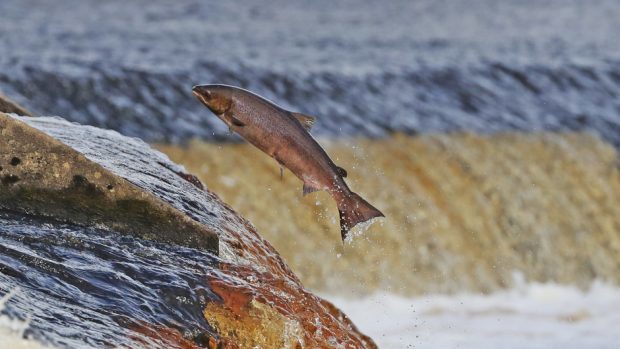Ness anglers have achieved a 21-year high in terms of the important spring catch, according to “encouraging” 2016 figures.
The River Ness along with Loch Ness and its associated rivers broke the 1,000 fish barrier overall – the second-highest catch in six years.
The board has also used a drone as part of their improvement work for the first time.
Members of the Ness District Salmon Fishery Board revealed yesterday that they hoped the trend would continue – although they also voiced concerns at the rate of poaching on the patch.
Board director Chris Conroy said: “Our provisional returns indicate the best ‘spring’ salmon catch for 21 years, a total of 324 fish. This is a very welcome step in the right direction and we are looking for the trend to continue in 2017.
“Our total catch for the season was 1,050 fish – the second-highest figure in six years.
“Angling makes an important contribution to our area in terms of jobs, visitors and economic input, so these figures will be welcomed.”
In Inverness, improvements were carried out at Holm Burn, Rough Burn and Whin Park Lade – and new technology was brought into play.
The director added: “We’ve cleared debris from 12 spawning burns, including solving major blockages and we have, for the first time, used a drone to carry out a trial spawning survey. There is potential for the further use of drones in this work as we undertook a record 47 fish surveys this year.”
Poaching is an ongoing concern, with people fishing without permission or via illegal methods on the River Ness, Loch Ness and Loch Dochfour as well as the Rivers Moriston, Oich and Garry.
Mr Conroy said: “A number of people have been reported and dealt with by the courts, while many more have been given formal warning.
“We’ll step up a twin track strategy of education and enforcement in the New Year to try to tackle illegal fishing.”
The director added: “It will be a priority in 2017 for us to work with the Scottish Government to further refine the assessment of the Special Area of Conservation on the River Moriston”. This follows the Board’s success in have the Ness waters upgraded to Grade Two from Grade Three, in which no catch at all is permitted.
“Our workload has significantly increased this year, as has been the case for several years, with a much greater focus on using science to allow an evidence-based approach to fishery management. Our resources have not expanded accordingly but we will do ‘more for less’ to make the progress required.”
